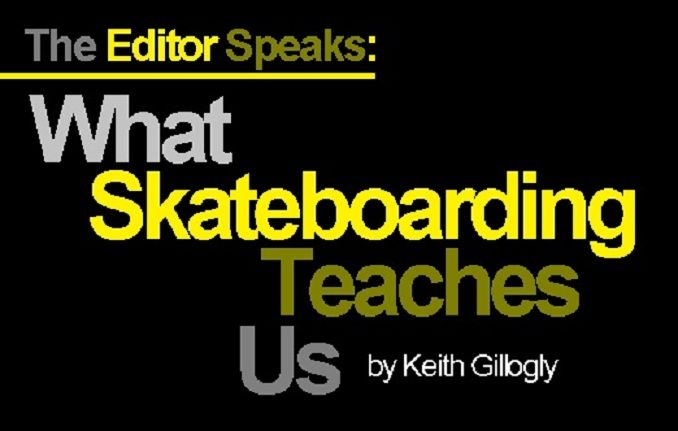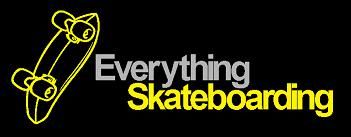
As skateboarders, sometimes I feel that we’re better than non-skateboarders—in certain ways, at least. I don’t mean better in the sense that we can look down on others (and let’s be honest, we’re usually the ones looked down upon); it’s more of a silent, perhaps unrealized appreciation for our own abilities. Yes, we learn new tricks and techniques after years of skating, but there are other lessons worked in as well. Even the best could hardly stand on a skateboard when just starting out. Feet are made for walking and running, and that stick with four wheels is about as awkward a mode of transportation as they come—but we’ve mastered it, and hey, that’s an accomplishment to be proud of.
Keep skating for a couple of years and you’ll inevitably learn a few tricks and maneuvers, and herein lies skateboarding’s most prominent virtue: patience. I know a lot of people who used to skateboard. You know a lot of people who used to skateboard. They all quit because a few months spent cruising the driveway didn’t turn them into their icon, Tony Hawk. The extent of their abilities halted at some ground-scraping shuv-it or off-balance rock to fakie. I don’t want to hate on the quitters, but I do want to recognize those who stuck with skateboarding. At this point it’s cliche to say that skateboarding is cool so long as you’re having fun. I kept skating for as long as I did because I kept fun ahead of frustration. There was a fairly steep hill in front of my house; it took me years to build up the stones to bomb it. And as for the street skating rite of passage of learning to ollie, that too was a years-long endeavor. But the whole time, I had a blast.
In terms of being a sport, skateboarding champions its non-competitive aspect. Yes, we have downhill races, freestyle showdowns and Maloof Money Cup-like spectacles, but at its core, skateboarding is you versus you. So how do you win at skateboarding? I’d say you never do. The best skateboarders, no matter their preferred styles or types of skating, actually can’t do everything; there are just too many tricks and styles to master it all. It’s this breadth that skateboarding offers, though, that keeps us humble. With so many new tricks, so many records being broken, any good skateboarder can only stand in awe at what he can’t do. Skateboarding has offered its share of virtuosos, yet no two are alike. This helps explain why so many great skateboarders are so modest; it’s not so much that the next guy can do it better, it’s that the next guy can do something different yet equally impressive—and often with more style. Besides, skateboarding will never have to distill “the best” down to who has more goals or wins, because such qualifications are left to sports that actually give a shit about labeling “the best.”
I don’t think any of us would appreciate our abilities on a skateboard or how fluid and free it feels to ride if those skills were innate. I’ll be celebrating ten years on a skateboard in April, and wow, there’s still a plethora of tricks I can’t do and a whole host of big ramps I’m still too afraid to ride. Yet my abilities have inevitably grown after ten years. (My maiden voyage on a skateboard carried me from one side of the kitchen to the other.) Here, skateboarding proves an apt example of the age-old saying: hard work pays off. If it weren’t for those thousands of hours spent on a skateboard, I’d still be rolling around the kitchen floor (well, maybe at least the driveway).
Skateboarders learn more than a few virtues through our chosen activity, but let’s be realistic: we skate for fun, not to build our credibility as upstanding citizens. But I’m able to look back and appreciate picking up a few life lessons along the way. At its core, skateboarding is four wheels riding over the pavement, an act so simple that I have to wonder what’s kept me coming back for so long. Perhaps it’s these deeper, hidden values that help pull us back. And as we get older and skate on, there’s one more virtue practiced, one that older skaters only continue to build: dedication.
